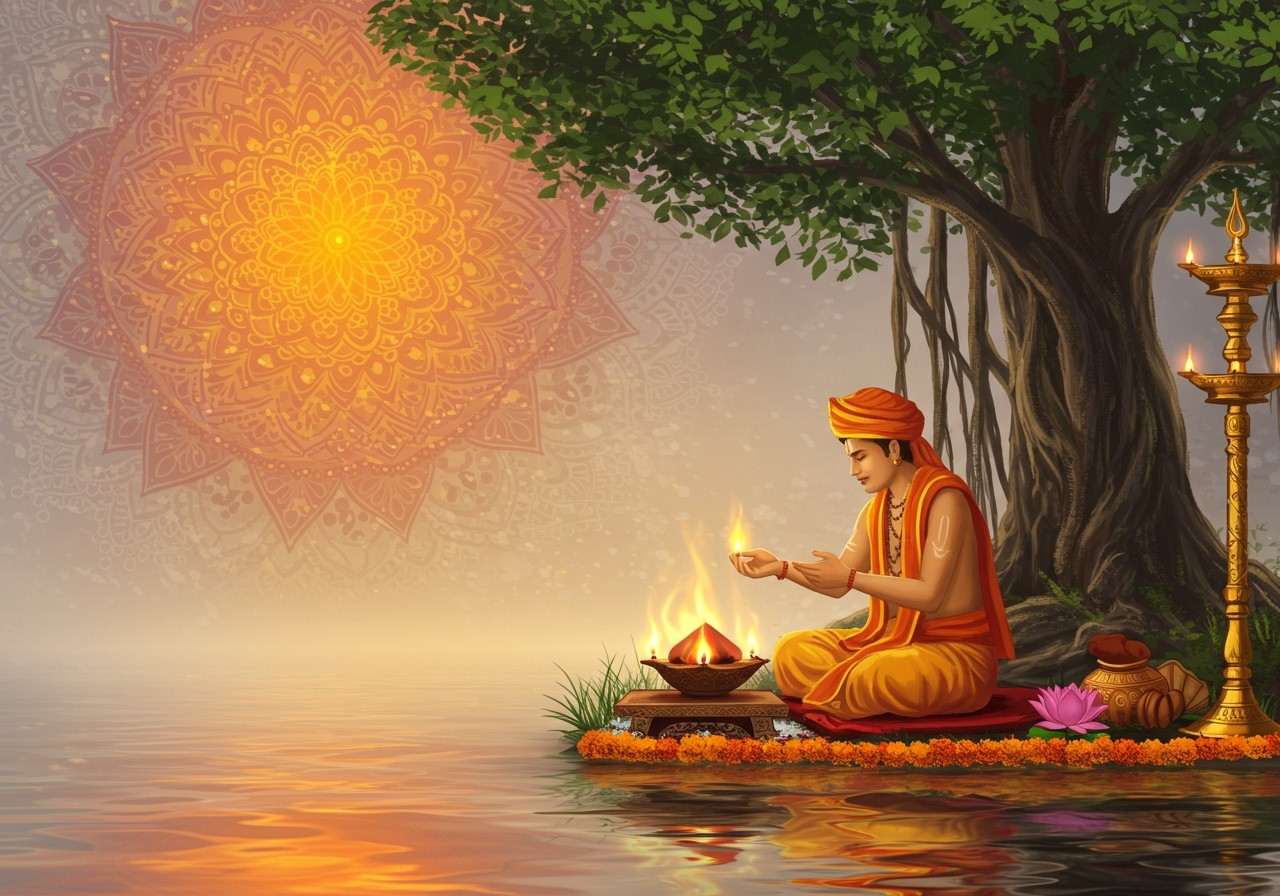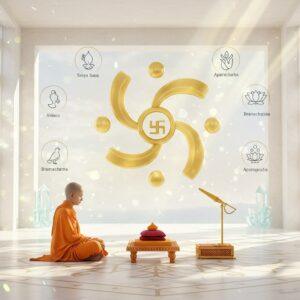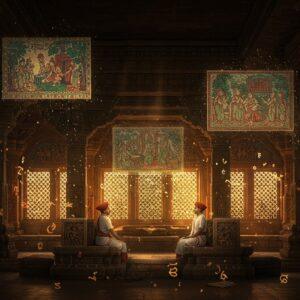
Imagine a journey through life, marked by sacred ceremonies that connect us to our heritage. These are the Dashakarma Sanskaras, sixteen rites of passage deeply embedded in Hindu tradition. From the first breath of life to the final farewell, these rituals offer a spiritual roadmap, guiding us through significant milestones. In today’s fast-paced world, many seek to honor these traditions, and with the convenience of online resources, it’s easier than ever to connect with our roots.
Understanding the Significance of Dashakarma Sanskaras
These Sanskaras aren’t mere rituals; they are profound spiritual practices. They cleanse and prepare us for life’s journey, deepening our connection with the divine. Each ceremony holds unique significance, shaping our understanding of ourselves and our place in the world. They offer a framework for personal growth and spiritual development, reminding us of the sacredness of every stage of life. These time-honored traditions provide a sense of continuity, linking us to generations past and future.
-
Garbhadhan (Conception): This is the very beginning, the blessing of a new life, invoking divine grace for a healthy and prosperous child.
It is the foundation upon which all other Sanskaras are built, a sacred moment of creation and hope.
-
Namakaran (Naming Ceremony): More than just giving a name, this ceremony welcomes the child into the family and community, bestowing blessings for a bright future.
It signifies the individual’s identity and place within the larger social fabric.
-
Upanayan (Sacred Thread Ceremony): This marks the beginning of formal education and spiritual learning, a transition into a life of knowledge and wisdom.
It symbolizes the student’s commitment to seeking truth and enlightenment.
-
Vivaha (Marriage): A sacred union, Vivaha signifies the joining of two souls, establishing a new family and social responsibilities.
It celebrates love, commitment, and the continuation of lineage.
-
Antyeshti (Last Rites): The final Sanskara, Antyeshti, provides a respectful farewell, honoring the departed soul’s journey beyond this life.
It offers solace to the bereaved and ensures a peaceful transition for the deceased.
Preparing for Sanskara Rituals: The Importance of Authenticity
Performing these rituals with authenticity requires careful preparation. The samagri, or traditional items, hold deep symbolic meaning. From purifying herbs to auspicious metals, each element plays a vital role. Sourcing authentic samagri has become easier with online platforms, ensuring the rituals are performed with utmost reverence. Beyond the materials, selecting an auspicious date and engaging a knowledgeable priest are crucial aspects of preparation.
You can explore a wide range of authentic Puja Samagri at Poojn.in’s Puja Samagri collection.
For specific Dashakarma items, we recommend browsing our Dashakarma Items category.
Poojn.in: Simplifying Tradition in the Modern Age
In today’s busy world, Poojn.in offers a convenient and reliable way to observe these sacred traditions. With a wide selection of high-quality samagri, pre-packaged ritual kits, and access to qualified priests, Poojn.in simplifies the complexities of these ceremonies. They even offer digital resources like video tutorials and online consultations, making it easier for families to understand and perform the rituals correctly. Poojn.in understands the importance of regional variations, offering personalized services that honor diverse customs while accommodating modern lifestyles.
Embracing Tradition in the Digital Era
As we look ahead to 2025, festivals like Lohri, Makar Sankranti, Mattu Pongal, Navaratri, Pitru Paksha, Karwa Chauth, and Diwali continue to hold deep meaning in our lives. These celebrations, much like the Dashakarma Sanskaras, remind us of the importance of community, gratitude, and devotion. They connect us to our roots, even as we embrace the conveniences of modern living.
Poojn.in offers a range of products perfect for these festivals. Check out our Culturally Significant Items.
Continuing the Legacy: Preserving Tradition for Future Generations
The Dashakarma Sanskaras are a testament to the enduring power of tradition. They offer not just a connection to our past but also guidance for the future. By performing these rituals with reverence and understanding, we honor our ancestors and pass on their wisdom to future generations. With platforms like Poojn.in, we can seamlessly blend tradition and technology, ensuring that our cultural and spiritual practices continue to thrive.
Here are a few product recommendations from Poojn.in that might interest you:
- Traditional Keya Kouto Sindur Dibbi (Sindoor Kouto) – Hand-Made Wooden Sindoor Container
- Poojn Natural White Cowrie (Koudi) Shells Big Chozi – Pure White Cowrie Shell (11-15/108 Pieces)
Common Questions about Dashakarma Sanskaras
What exactly are Dashakarma Sanskaras? They are a series of sixteen Hindu rituals that mark significant life transitions, from conception to cremation. These sacraments aim to purify and prepare an individual for their journey through life, with the word “Samskara” literally meaning “putting together, making perfect, getting ready, to prepare,” or “a sacred or sanctifying ceremony”. Why are they so important? These Sanskaras serve as spiritual milestones, guiding us through life’s journey and connecting us with the divine. Which are the key ones to know? While the exact number and details can vary regionally, key Sanskaras generally include Garbhadhan, Namakaran, Upanayana, Vivaha, and Antyeshti. How do I prepare for these rituals? Preparation involves gathering the necessary samagri (ritual items), selecting an auspicious date, and consulting with a knowledgeable priest. How can Poojn.in assist? Poojn.in simplifies the process by providing access to authentic samagri, qualified priests, and helpful resources like video tutorials. Can these be performed at home? Yes, with the proper guidance and materials. Is there a specific time for each Sanskara? Yes, the timing is often determined by astrological charts and should be discussed with a priest. Are there regional variations? Absolutely, the specifics of each Sanskara can vary based on regional traditions, adding to the rich tapestry of Hindu culture.
Explore more about daily life practices and Lord Narasimha temples:


